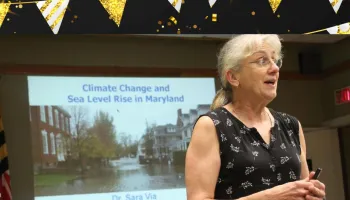Sara Via

Sara Via
Professor
Graduate Program Affiliations
Research
Dr. Via is currently focused on climate change outreach and extension. Previous work in the Via Lab dealt with the genetics of insect-plant interactions, the genetic architecture of local adaptation and host plant specialization in pea aphids, and evolutionary genetics of speciation.
Education
Ph.D., Duke University, 1983
M.S., Australian National University, Canberra, 1976
B.A., Duke University, 1974



